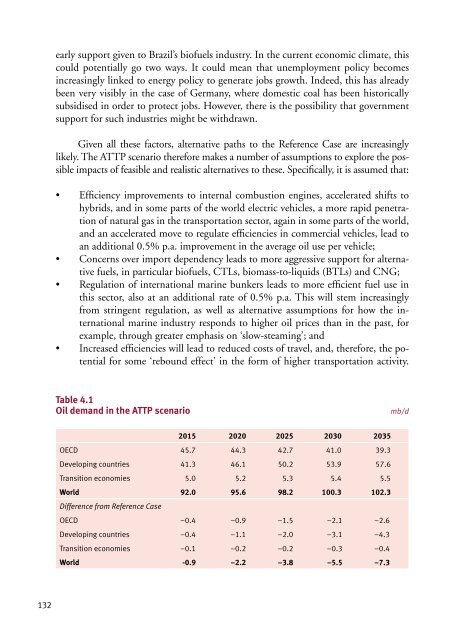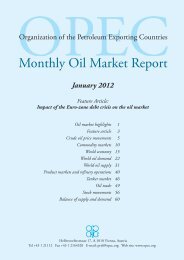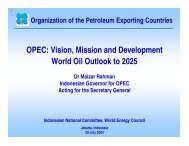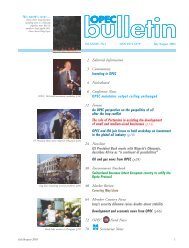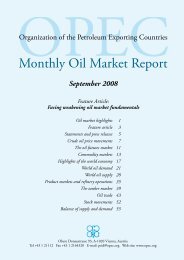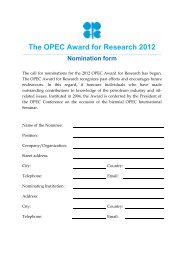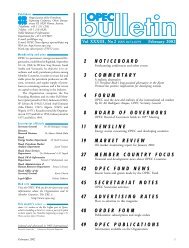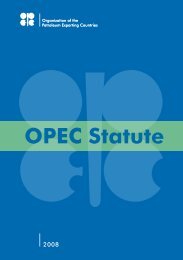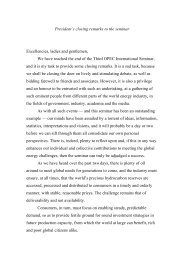Section One
Section One
Section One
Create successful ePaper yourself
Turn your PDF publications into a flip-book with our unique Google optimized e-Paper software.
132<br />
early support given to Brazil’s biofuels industry. In the current economic climate, this<br />
could potentially go two ways. It could mean that unemployment policy becomes<br />
increasingly linked to energy policy to generate jobs growth. Indeed, this has already<br />
been very visibly in the case of Germany, where domestic coal has been historically<br />
subsidised in order to protect jobs. However, there is the possibility that government<br />
support for such industries might be withdrawn.<br />
Given all these factors, alternative paths to the Reference Case are increasingly<br />
likely. The ATTP scenario therefore makes a number of assumptions to explore the possible<br />
impacts of feasible and realistic alternatives to these. Specifically, it is assumed that:<br />
• Efficiency improvements to internal combustion engines, accelerated shifts to<br />
hybrids, and in some parts of the world electric vehicles, a more rapid penetration<br />
of natural gas in the transportation sector, again in some parts of the world,<br />
and an accelerated move to regulate efficiencies in commercial vehicles, lead to<br />
an additional 0.5% p.a. improvement in the average oil use per vehicle;<br />
• Concerns over import dependency leads to more aggressive support for alternative<br />
fuels, in particular biofuels, CTLs, biomass-to-liquids (BTLs) and CNG;<br />
• Regulation of international marine bunkers leads to more efficient fuel use in<br />
this sector, also at an additional rate of 0.5% p.a. This will stem increasingly<br />
from stringent regulation, as well as alternative assumptions for how the international<br />
marine industry responds to higher oil prices than in the past, for<br />
example, through greater emphasis on ‘slow-steaming’; and<br />
• Increased efficiencies will lead to reduced costs of travel, and, therefore, the potential<br />
for some ‘rebound effect’ in the form of higher transportation activity.<br />
Table 4.1<br />
Oil demand in the ATTP scenario mb/d<br />
2015 2020 2025 2030 2035<br />
OECD 45.7 44.3 42.7 41.0 39.3<br />
Developing countries 41.3 46.1 50.2 53.9 57.6<br />
Transition economies 5.0 5.2 5.3 5.4 5.5<br />
World 92.0 95.6 98.2 100.3 102.3<br />
Difference from Reference Case<br />
OECD –0.4 –0.9 –1.5 –2.1 –2.6<br />
Developing countries –0.4 –1.1 –2.0 –3.1 –4.3<br />
Transition economies –0.1 –0.2 –0.2 –0.3 –0.4<br />
World -0.9 –2.2 –3.8 –5.5 –7.3


